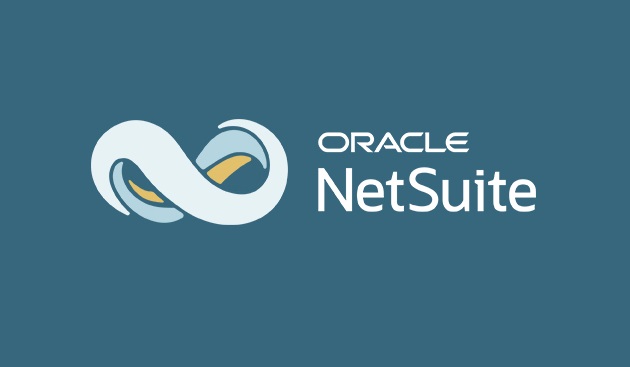Dr. Sangeeta Chhabra
CPAs and finance professionals today understand the importance of transparency and collaboration; however, lack of uniformity acts as an obstacle to seamless coherence in data management processes. While navigating these challenges, generative AI is emerging as a promising prospect.
Generative AI, as a growing ecosystem of technologies, extends beyond GPT-4 and Gemini with added capabilities to process diverse data types, such as text, images, audio, video, 3D modeling, and coding.
With advancements, such as the latest GPT-4, Gemini, and Microsoft Copilot, as well as everyday AI-powered tools, such as digital assistants like Alexa, Siri, or Google Home, self-driving cars, and facial recognition software, it’s apparent that the future we’ve been discussing is already here. It’s exciting to consider the possibilities that AI holds and how it will continue to revolutionize how we live and work.
As the accounting landscape undergoes a paradigm shift driven by the relentless march of technology, businesses are committed to staying ahead of the curve. We believe embracing innovation, particularly the transformative power of AI and automation in general, is key to ensuring long-term success in the profession.
Barriers to AI adoption in accounting
The accounting profession has historically had a culture where data plays a prominent role. This requires skilled individuals who can navigate complex scenarios and solve problems effectively by using data.
While advanced natural language processing (NLP) in AI has been demonstrated as a powerful tool for accountants, challenges persist, including data privacy concerns and the need for continuous training of NLP models. Advancements in NLP technology will likely lead to even more sophisticated applications in accountancy.
Embracing these advancements will require accountants to continuously develop their technical skills and adapt to the evolving landscape. And although AI has reached a point where it can automate the regulatory change management process, it still faces limitations due to the need for nuanced comprehension, particularly in the context of evaluating requisite modifications dictated by regulations.
According to the Gartner Research Circle survey, 56% of respondents said that acquiring new skills will be required to do both existing and newly created jobs by AI. It also highlights there’s a lack of IT skills to integrate AI into the system.

Because AI is based on a probabilistic approach, there might be multiple circumstances where a group of experts might not agree with the solution given by AI. This discrepancy between AI technology and finance experts is one reason the industry stepped back in integrating AI into its business processes.
The next challenge revolves around the data quality derived from AI. Since generative AI depends on data to make accurate predictions and decisions, organizations need to ensure that all information aligns with past data. Here, the responsibilities of accounting firms increase as they are required to authenticate every bit of data coming from AI systems. Accounting firms must manage and maintain their data systems to provide reliable inputs to AI algorithms while complying with data privacy regulations.
Managing expectations and incremental implementation
As we know, AI is a broad term encompassing various components, and in relevance to accounting, it includes cognitive and machine learning, as demonstrated by expense management solutions, financial data analytics tools, credit risk assessment software, and more.
However, generative AI, like any other technology, is confronted with the challenge of partial understanding of its capabilities, coupled with overinflated expectations for its immediate potential. A combination of market hype and a genuine appetite for technology-driven solutions in the accountancy field fuels this scenario.
Consequently, it is essential to manage expectations and remain pragmatic about what AI can genuinely achieve in the short to medium term, considering its current limitations. To date, the most successful AI initiatives in accounting have taken a gradual approach, making incremental steps rather than pursuing large-scale projects. This approach helps overcome skepticism, demonstrates the concept’s validity with limited investments, and progressively builds the appetite for further AI implementation.
At this point, AI is no longer a buzzword; it’s a game-changer. These intelligent systems streamline tedious tasks such as data entry, reconciliation, and report generation, allowing accountants to focus on strategic decision-making and client advisory services.
Natural language processing in accounting
NLP essentially changes the way accountants interact with data, bringing valuable insights and strategic decision-making opportunities.
To fill the void between human and machine intelligence, NLP must become a cornerstone of modern accountancy. NLP can drive the future of accounting by allowing accountants to provide unprecedented value to clients and stakeholders.
NLP is surely a driving force behind machine intelligence and AI in several ways.
Here are a few instances:
1. Accounting process automation: Accounting is a profession that deals with large amounts of unstructured data, making it a prime candidate for NLP applications. NLP-driven automated bookkeeping, invoice processing, and expense management solutions have reformed mundane accounting tasks, minimized errors, and increased productivity. NLP’s semantic analysis capabilities enable better context interpretation of human-generated financial data.
2. IT integration in accounting systems: To incorporate NLP in accounting firms, it is important to ensure that their IT systems are compatible with their accounting software and that proper security measures are in place to protect sensitive financial data.
NLP algorithms are powered by machine learning techniques, requiring robust IT infrastructure to process large volumes of data efficiently. NLP modules in accounting software improve user experience by seamlessly providing advanced analytics and insights to accountants. Moreover, integrating IT into accounting systems frees up precious time of accounting professionals by automating mundane tasks, and they can focus on more strategic tasks.
3. Advancements in sentiment analysis: Sentiment analysis, a subset of NLP, is transforming the way businesses collect customer feedback and monitor their brand reputation. Sentiment analysis prioritizes client satisfaction, identifies areas for improvement, and predicts potential issues.
Additionally, sentiment analysis, also known as intelligent communications monitoring, evaluates employee sentiment and uncovers fraud in accounting and auditing. NLP enables accountants and finance professionals to better understand the emotional context surrounding financial data.
4. Data-driven decision-making: Today’s accountants serve as strategic advisors, utilizing NLP to extract insights from large data sets. NLP integrates data analytics tools, identifies patterns, and performs predictive analysis, enabling CPAs to offer expert financial advice to their clients.
What is next?
The accounting profession is moving beyond bookkeeping and payroll activities and has taken a turn toward strategizing for future businesses. Their skill set and role have greatly expanded toward supporting technologies like AI to settle the collaborative setting and data security at large.
Tomorrow’s accountants need to develop a broad understanding of contextualizing while boosting return on investment. Anand Rao, U.S. Analytics Group innovation leader at PwC, shared his perspective on AI:
“Artificial intelligence can help people make faster, better, and cheaper decisions. But you must be willing to collaborate with the machine and not just treat it as a servant or overlord.”
AI technology can bridge the gap between human errors in accounting and data management. Undeniably, AI algorithms can make the job of accountants easier by analyzing vast amounts of financial data, detecting patterns, trends, and anomalies, and offering valuable insights.
A new era of possibilities
The convergence of cloud hosting, AI, and automation has ushered in a new era of possibilities for the accounting industry. From streamlined operations to advanced data analytics, these technologies are reshaping the practice of accounting in profound ways.
As firms adapt to this evolving landscape, the key to success will lay in embracing innovation and leveraging these tools to drive growth and client satisfaction.
ABOUT THE AUTHOR:
Dr. Sangeeta Chhabra, co-founder and director of Ace Cloud Hosting, is a leader and innovative entrepreneur with more than 20 years of experience in the IT sector. She has positioned the company as a leading global provider of IT and managed cloud services, celebrated for its QuickBooks hosting tailored for the accounting sector, as well as its Managed Security Services and Public Cloud offerings for SMBs and enterprises. Under her leadership, Ace Cloud was honored as the Best Outsourced Technology Provider at the CPA Practice Advisor Readers’ Choice Awards 2023, among other accolades. Beyond her professional successes, Dr. Chhabra is a passionate advocate for women’s empowerment and is committed to fostering an inclusive environment at Ace Cloud.
Thanks for reading CPA Practice Advisor!
Subscribe Already registered? Log In
Need more information? Read the FAQs




